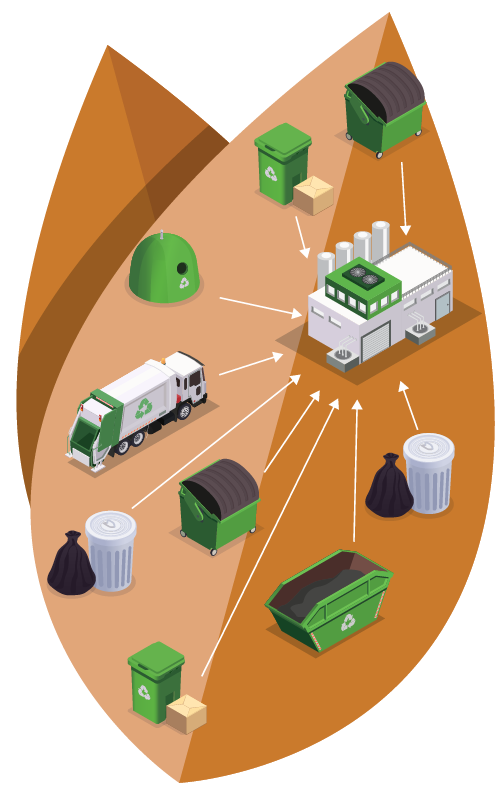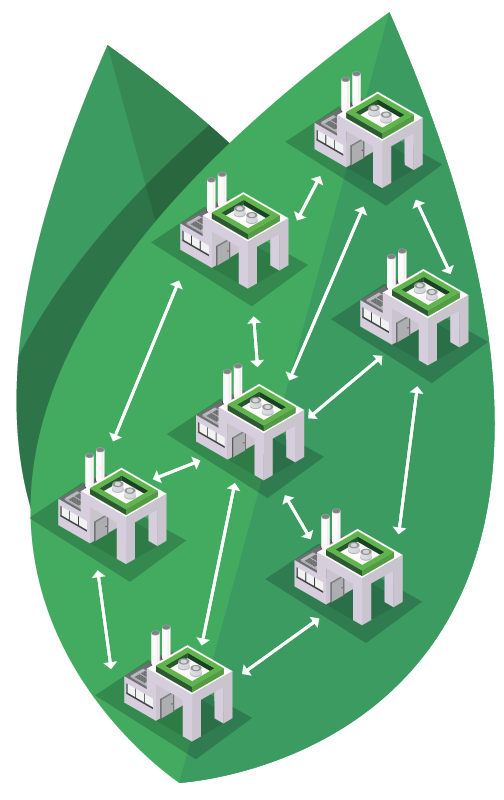energy_savings_leaf About Us
JSIC has advanced gasification techniques that conforming with EU's EIA (Environmental Impact Assessment). Converting organic waste to RDF-7, which is syngas with higher conversion efficiency of heating value.
RDF-7 as syngas with high heat value and efficiency transformation which is one of the RDF (Refuse Derived Fuel). Through the gasification and the MTG (Micro Gas Turbine Generator), which made in Finland, JSIC provides stable green renewable energy.
Biomass energy is one of the largest resources on earth.
Biomass energy cycle is simultaneously eco-friendly and sustainable.
The characteristic of biomass energy is “circulation”. Like Carbon fixation by plants photosynthesis, biomass conversion is a technology by human. From biomass fuel to Syngas to power generation and form a green circular economy.
The main goal of JSIC, is to convert waste into energy. Biomass wastes in general life, agriculture, construction and industry are all usable resources. In addition, JSIC also attaches great importance to the energy conversion process is in compliance with environmental protection regulations.
Through our distributed resource-to-energy conversion center,
JSIC can make circular economy happen everywhere.
When it comes to waste treatment situation in Taiwan, JSIC's waste resource conversion is not only reusing organic waste, but also recovering waste thermal energy to heat CHP or cool CCHP, with higher energy conversion efficiency. The biocar and industrial acetic acid (wood vinegar) produced during the energy conversion process, are also reusable in industry (agriculture). Achieving the goal of turning all waste into resource.
JSIC is experienced in renewable energy system integration, and can also assist in getting stationary pollution treatment certificatess. In terms of the construction of regional miniature power plants, JSIC uses gasification to convert waste into RDF-7 gaseous fuel for microturbine to generate power. The microturbine generator can continuing operate 24 hours a day and the capacity can reach to 80-90%, and it can recover waste heat for heating or cooling. Unlike other power plants which use solid recovered fuel (SRF), they need to consume energy to make waste into SRF.
Renewable Energy
Raw materials can be recycled and turn into energy. The renewables are inexhaustible and unaffected by energy shortages.
Renewable energy is a solution for sustainable development.
Recycling
Converting wasting organic materials to power generation, through professional technology and customized services.
To accomplish waste-to-energy and recycle by gasification.
Circular Economy
Improving the efficiency of utilization, reducing biomass waste, attaching great importance to reusing resources, and creating new value of wasting.
Garbage disposal has always been a global issue. Now, most of Taiwan's incinerators has been using for 30 to 40 years, and they process about 1,000 tons of mixed garbage on a daily base, causing a huge impact on the environment. Generally, the service life of incineration plants is 20 years. As the service life of most waste incineration plants in Taiwan is expiring, waste disposal will be a serious issue in the near future.





